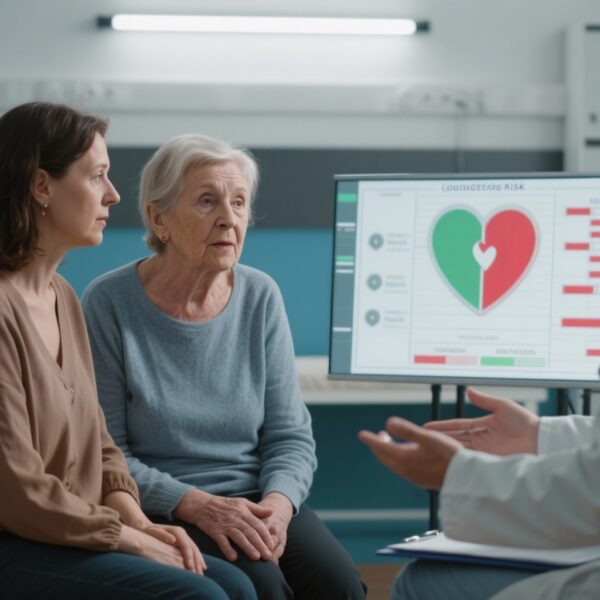Title
Most Host Countries Do Not Get Timely Access to Medicines They Help Test: A Critical Review of FDA-Backed Trials (2015–2018)
Highlight
– A study of 172 novel medicines supporting FDA approvals (2015–2018) shows that most countries hosting phase 2 and 3 trials did not have market authorization for those medicines within five years.
– Low- and middle-income countries (LMICs) were disproportionately affected; only 13% of medicines tested in lower-middle-income countries were accessible there within five years.
– High-income countries showed improvement over time; LMICs showed no statistically significant gains, highlighting persistent equity gaps and ethical concerns.
Background
Clinical trials are a principal means to generate evidence for safety and efficacy that underpins regulatory approval. International trial conduct is common and can accelerate recruitment, diversify participant populations, and build local research capacity. Ethical guidelines—most prominently the World Medical Association’s Declaration of Helsinki and CIOMS guidance—assert that populations participating in research should stand to benefit from resulting interventions. Yet probing whether those benefits materialize in the form of local access to approved medicines requires systematic measurement.
Study design
The focal study by Lee, Gross, and Miller (JAMA Internal Medicine, 2025) is a cross-sectional retrospective analysis of phase 2 and 3 trials cited as supporting FDA approval for novel medicines between 2015 and 2018. Publicly available records from Drugs@FDA, ClinicalTrials.gov, and national regulatory agency websites were used to identify trial locations and to ascertain whether the medicines subsequently received marketing authorization (defined here as regulatory approval enabling legal marketing and distribution) in countries that hosted trials. The analysis evaluated the proportion of medicines with marketing authorization where tested, median time to authorization, and trends across time, country income group, and geographic region. Data extraction and analysis occurred from November 2022 to January 2025.
Key findings
Scope and distribution of trials: The FDA approvals examined encompassed 172 novel medicines supported by 885 trials conducted across 89 countries (median 16 countries per medicine, IQR 7–26). Of these countries, 77 publicly reported marketing authorization decisions and were therefore included in the primary access analyses.
Overall access at 5 years: Among the 77 countries with publicly available data, only 11 (14%) had market authorization for all medicines they hosted trials for within five years of FDA approval. Focusing on medicines tested outside the United States, 34 of 144 medicines (24%) were physically accessible (ie, had market authorization) in all countries where they were tested by 5 years.
Income-group stratified access: Disparities by national income were marked. Within five years of FDA approval, high-income countries had the greatest proportion of tested medicines with market authorization—45 of 142 medicines (32%)—compared with upper-middle-income countries (19 of 87 medicines, 22%) and lower-middle-income countries (7 of 55 medicines, 13%). These differences were statistically significant (P < .001).
Regional differences: Physical access varied substantially by region. Among medicines tested in Africa, 11 of 40 (28%) reached authorization at 5 years, whereas Western Europe had far higher authorization rates (104 of 127 medicines, 82%) at the same time point (P < .001).
Time trends: There was an overall improvement in access for high-income countries comparing medicines approved in 2015–2016 versus 2017–2018 (22% vs 38%; P < .001). No statistically significant gains were observed for upper-middle-income countries (18% vs 24%; P = .08) or lower-middle-income countries (14% vs 12%; P = .48).
Interpretation and clinical relevance
This study quantifies a stark gap between participation in pivotal trials and subsequent regulatory access, with persistent inequities disadvantaging LMICs. From a clinical and public health perspective, the findings have multiple implications:
- Ethics and justice: The results raise concerns about distributive justice and the ethical principle that those who accept the risks of research should not be left out of the benefits. Limited regulatory access undermines the reciprocity that undergirds equitable trial conduct.
- Trust and recruitment: Communities may be less willing to participate in future trials if tangible benefits (availability of the tested medicine) do not follow—compromising generalizability and enrollment in research that aims to improve global health.
- Capacity-building vs. extractive research: While international trials can build local infrastructure and expertise, those benefits may be hollow if the tested products are not available locally, perpetuating a perception of extractive research.
- Health systems impact: Market authorization is a necessary but not sufficient condition for clinical access. Even when authorization occurs, affordability, reimbursement, supply-chain logistics, and prescriber familiarity will determine whether patients actually receive therapy.
Study strengths
Key strengths include a comprehensive, reproducible approach using public regulatory and trial registries; a clearly specified timeframe tied to a recent regulatory era; and meaningful stratification by country income and geographic region to highlight inequities. The use of market authorization as a measurable, verifiable outcome provides an objective indicator of physical legal access.
Limitations
Important limitations should guide interpretation:
- Market authorization is an imperfect proxy. Approval does not guarantee product supply, affordability, inclusion in formularies, or clinical uptake.
- Reliance on public regulatory websites excludes countries without transparent reporting and may bias sampling toward jurisdictions with stronger administrative capacity.
- The analysis focuses on FDA-supported approvals (US regulatory pathway) and a specific approval window (2015–2018). Patterns could differ for approvals grounded in other regulators or for later time periods.
- Causal mechanisms were not investigated; the study quantifies access gaps but does not dissect why companies or regulators delay or decline national registrations (e.g., commercial strategy, regulatory burden, pricing concerns, or manufacturing constraints).
Policy and practice implications: what should stakeholders do?
The study’s findings call for concrete, accountable actions by trial sponsors, regulators, funders, research ethics committees, journals, and global health institutions:
- Contractual post-trial access commitments: Sponsors and site institutions should negotiate and document concrete post-trial access plans before trial initiation. These should be binding or prospectively monitored by ethics committees and funders.
- Regulatory reliance and accelerated pathways: National regulators, particularly in LMICs, should use reliance procedures, collaborative registration mechanisms (e.g., WHO Collaborative Registration Procedure), and dossier-sharing to shorten registration timelines without compromising safety or efficacy review quality.
- Transparency requirements: Trial registries and regulatory submissions should include explicit fields describing plans and timelines for national registration and distribution in trial-host countries; journals and ethics committees should require disclosure of these plans as part of publication and approval processes.
- Pricing and procurement strategies: Early engagement with global purchasers (e.g., WHO, UN agencies, pooled procurement mechanisms) and commitments to tiered pricing or donation programs can ensure that authorization is matched by affordability and supply.
- Technology transfer and local manufacturing: For products of major public health importance, technology transfer and local production agreements can reduce long-term dependence on external supply and improve sustainable access.
- Monitoring and accountability metrics: International bodies and research consortia should track post-trial access outcomes as quality indicators of ethical trial conduct and publish country-level dashboards to inform stakeholders.
Recommendations for future research
Further research should:
- Extend analyses to other regulatory pathways (EMA, PMDA, national approvals) and to more recent approval cohorts to assess trends over time.
- Link market authorization data to measures of actual availability, affordability, and uptake at the facility level.
- Use qualitative methods to identify commercial, regulatory, and policy drivers of delayed or absent registration in trial-host countries.
- Evaluate the effectiveness of specific interventions—such as contractual access clauses, regulatory reliance initiatives, or procurement commitments—in improving local access following trials.
Funding and clinicaltrials.gov
Primary data sources reported by the authors included Drugs@FDA, ClinicalTrials.gov, and national regulatory agency websites. For study-specific funding and registration details, see Lee CJ, Gross CP, Miller JE. Physical Accessibility of Medicines in Countries Hosting Trials for FDA Approvals. JAMA Intern Med. 2025; doi:10.1001/jamainternmed.2025.6060.
Conclusion
The JAMA Internal Medicine analysis provides robust evidence that many countries that host pivotal FDA trials do not obtain timely market authorization for the medicines they help evaluate—especially LMICs. The pattern raises ethical questions about the distribution of benefits arising from international research and highlights an urgent need for policy changes and accountability mechanisms to ensure that participating populations are not left behind. Market authorization is only the first step; equitable access will require coordinated efforts spanning regulatory reform, procurement strategies, affordability measures, and transparent contractual commitments embedded into the research enterprise.
References
1. Lee CJ, Gross CP, Miller JE. Physical Accessibility of Medicines in Countries Hosting Trials for FDA Approvals. JAMA Intern Med. 2025 Nov 17. doi: 10.1001/jamainternmed.2025.6060. PMID: 41247741.
2. World Medical Association. Declaration of Helsinki—Ethical Principles for Medical Research Involving Human Subjects. Last amended 2013. https://www.wma.net/policies-post/wma-declaration-of-helsinki-ethical-principles-for-medical-research-involving-human-subjects/
3. Council for International Organizations of Medical Sciences (CIOMS). International Ethical Guidelines for Health-related Research Involving Humans. 2016. https://cioms.ch/wp-content/uploads/2017/01/WEB-CIOMS-EthicalGuidelines.pdf
4. U.S. Food and Drug Administration. Drugs@FDA Database. https://www.accessdata.fda.gov/scripts/cder/daf/
AI-friendly visual prompt (thumbnail)
A world map with pinpoints marking clinical trial sites, a partially open regulatory dossier stamped “Approved” projected over high- and low-income countries with a prescription bottle behind a closed gate in LMICs, muted blues and grays, professional medical-illustration style, high resolution.



